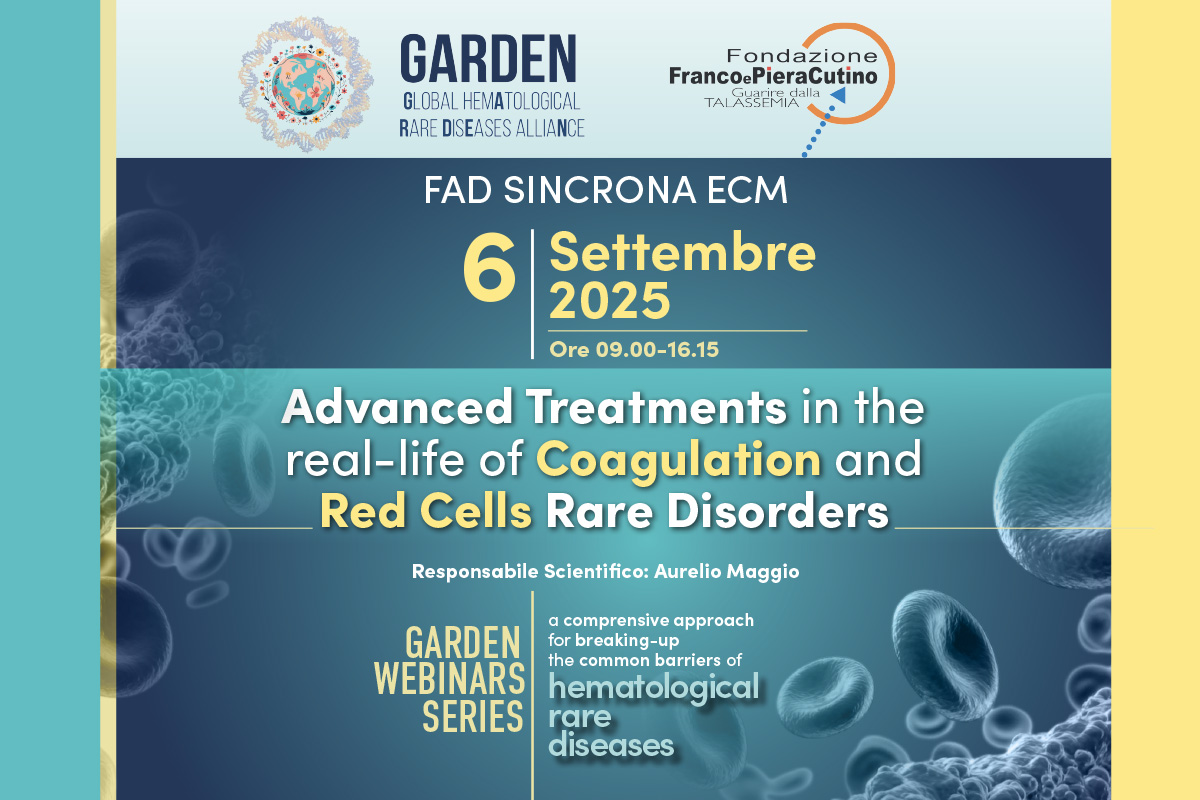Advanced treatments in the real-life of coagulation and red cells rare disorders
RAZIONALE
Rare hematological diseases, while individually uncommon, collectively impact millions of lives worldwide. These conditions present significant challenges in terms of early diagnosis, treatment accessibility, and appropriate and effective patient communication. Overcoming these barriers requires a multidisciplinary international network aimed at establishing a common framework for corrective actions.
The rapid evolution of treatment options for rare hematological diseases necessitates ongoing education for healthcare professionals. This event focuses on several key areas where recent progress has been made, including:
• Hemophilia: The program will explore real-world data on current hemophilia treatments and prophylaxis, including the latest international consensus recommendations. This is crucial for optimizing patient outcomes and ensuring consistent standards of care.
• Thalassemia and MDS: The event will address the real-life experience with luspatercept, a novel therapeutic agent, in the management of these challenging conditions. Sharing real-world data is essential for understanding the drug’s effectiveness and safety profile in diverse patient populations;
• PK Deficiency, Thalassemia, and SCD: The program will highlight the role of mitapivat and etavopivat in these distinct diseases, providing a unique opportunity to compare and contrast its application across different rare hematological conditions. This comparative approach will enhance participants’ understanding of targeted therapies.
• TTP: this is a real hematological emergency and difficulty in diagnosis and appropriate treatment recommendations in the “real-life” are so far to be empowered.
• PNH: the patients with this very rare hematological disease (1/1.000.000 inhabitants) now are living with the possibility of having different treatments. However, appropriate information and costs of these innovative treatments may become barriers for their use.
• GENE THERAPY: is now at the “the patient’s bedside” in some European countries. The meeting will address data from real-life in UK.
• AI: Artificial Intelligence may change our approach in collecting data of patients with rare hematological diseases. This educational will address the possible use of a new AI tool to collect in more appropriate and faster way clinical data for randomized clinical trials.
PRE-ISCRIZIONI
Iscrizioni chiuse
